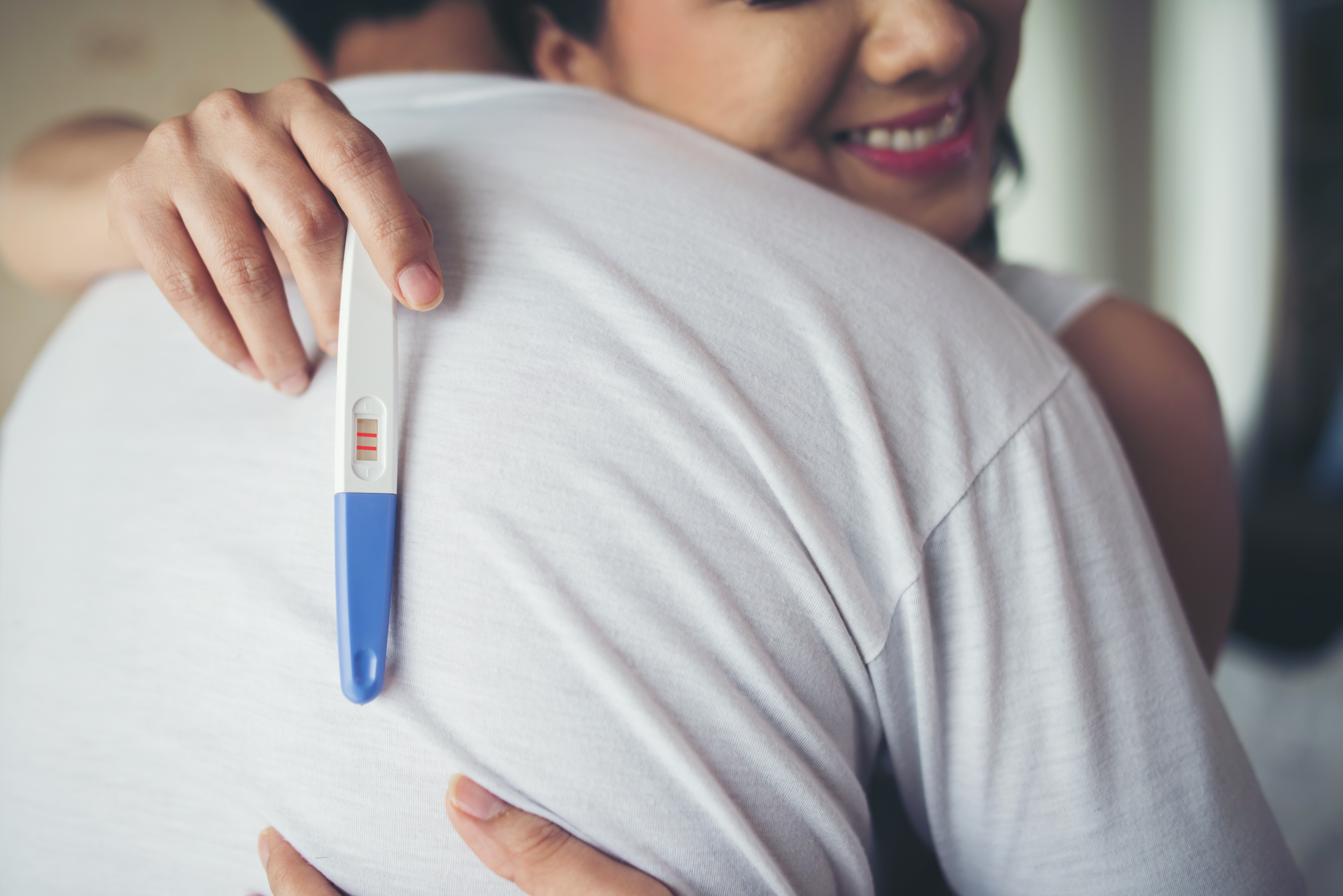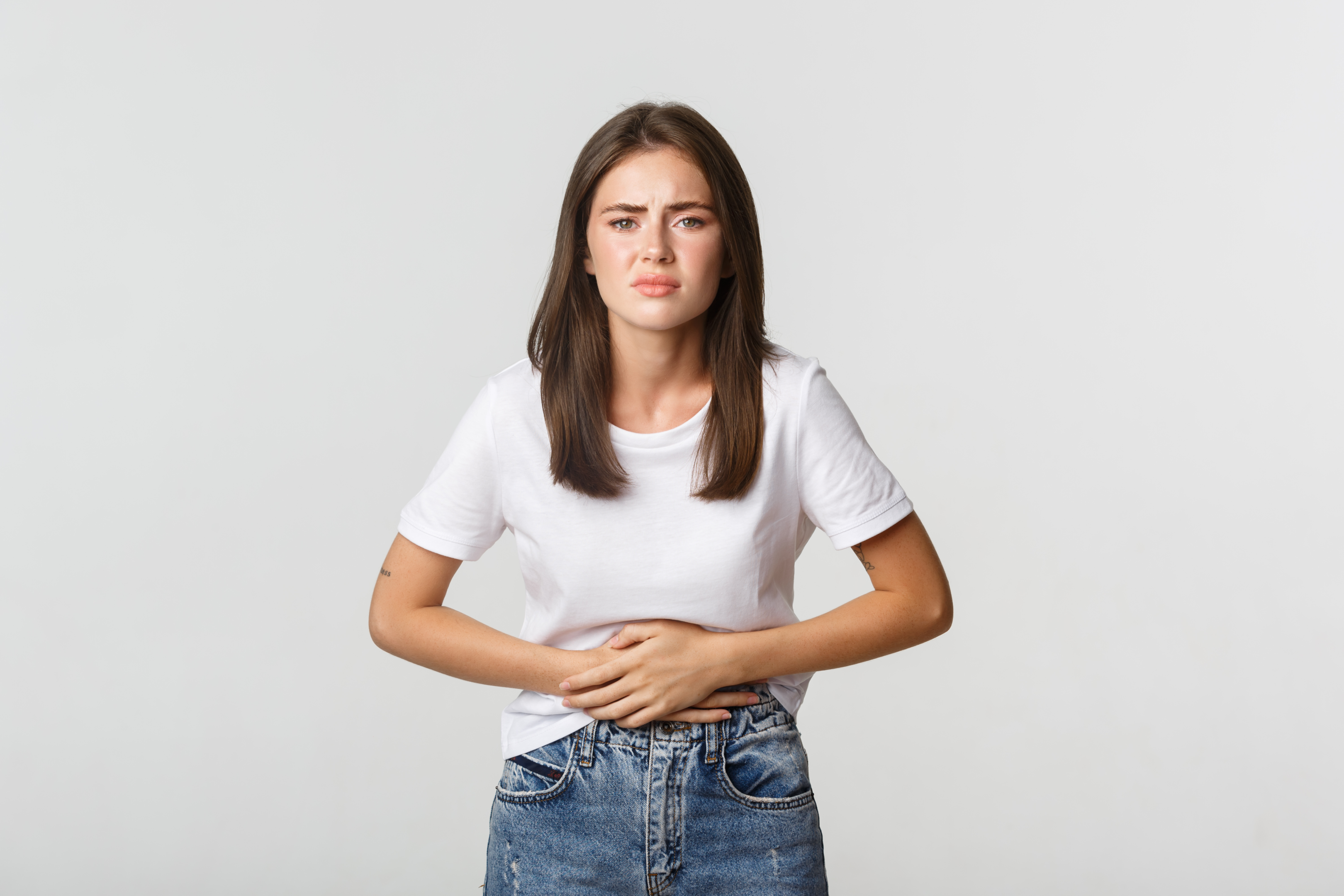How Long Does Ovulation Last?



If you're likely to get pregnant, knowing when you ovulate and how to tell when you're most fertile will assist. Ovulation is the release of an egg from an ovary. Your ovulatory cycle lasts between 12 and 48 hours. This usually happens in the middle of the menstrual cycle, although the precise date varies from person to person.
However, there are around six days when you are most likely to conceive. Sperm is highly resilient and may survive in the female reproductive tract system for up to 72 hours so that you can get pregnant up to five days before and one day after ovulation. This is referred to be your fertile window. Having intercourse within this six-day fertile window dramatically increases your chances of becoming pregnant.
Ovulation is a natural cycle feature of the menstrual. When an egg is released from your ovary, this happens.
When the egg is released, sperm may or may not fertilise it. If the egg is fertilised, it may travel to the uterus and implant, resulting in a pregnancy. When an egg goes unfertilised, it disintegrates, and the uterine lining is lost during your period.
Understanding how and when ovulation occurs might help you achieve or avoid pregnancy. It may also aid in the diagnosis of some medical disorders.
What role does ovulation play in your menstrual cycle?
The day your menstrual flow starts, reset your monthly cycle. This is the beginning of the follicular phase, during which the egg develops and is released at ovulation.
During the follicular phase, your body produces follicle-stimulating hormone (FSH), which aids in the maturation and release of the egg within your ovary.
When the egg is mature, your body produces a surge of luteinising hormone (LH), which causes the egg to be released. Ovulation typically occurs around day 14, 28 to 36 hours following the LH surge.
The luteal phase follows ovulation. Hormones will prevent the lining from shedding if pregnancy develops during this time. Otherwise, bleeding will begin around day 28 of the cycle, signalling the start of the following cycle.
In a nutshell, ovulation happens during the menstrual cycle.
Ovulation happens around midway through the menstrual process. Assuming a 28-day cycle—the usual cycle length—the egg matures, and ovulation occurs 14 days after the start of a menstrual period.
However, the exact timing of the ovulation date varies from person to person depending on cycle length and stress levels. What varies is not so much the release as it is the process of developing the egg. Most women may need more than 14 days to attain ovulation. And as you grow older, the process becomes a little faster.
If a woman does not ovulate during a particular cycle, progesterone rise does not occur. Instead, oestrogen-driven development mechanisms continue. This unregulated development significantly impacts her capacity to conceive but may also raise the chance of additional issues.
Anovulation, also known as irregular ovulation, shows that something is amiss in the delicate balance of hormones generated by the pituitary gland and the ovaries. This may raise a woman's chance of developing certain forms of cancer over time.
Women who have regular cycles that are preceded by premenstrual symptoms ovulate regularly. If a woman feels she is experiencing ovulation problems, ovulation predictor kits may assist her in determining whether or not an egg is being produced throughout her cycle. A basal body temperature chart may also be used to determine whether a woman is ovulating, as can a blood progesterone level seven days before her predicted menstruation.
For women of childbearing age, ovulation occurs monthly. It commonly occurs on day 14 of a 28-day menstrual cycle. A mature egg is discharged from one of your ovaries and travels from your fallopian tube to your uterus throughout this procedure.
The release of an egg is not a natural event. Rather, other conditions occur before ovulation. Between days 6 and 14 of your menstrual process, follicles in one of your ovaries begin to grow.
One of these follicles produces an egg between days 10 and 14. On day 14, this egg is discharged from the ovary.
Some women may need to pay more attention to their menstrual process or monitor ovulation. However, ovulation has a significant influence on conception. So, if you're thinking about starting a family, knowing how long does ovulation last is useful.
Some individuals do not ovulate regularly, if at all. Anovulation occurs in one out of every ten women with ovaries at some time throughout their reproductive years when an egg is never produced during their menstrual process. No intercourse will get you pregnant if you aren't ovulating.
Irregular or entirely missing periods are the most common signs that ovulation is not happening or is rarely occurring. Another indicator of anovulation is the absence of fertile mucus. Although it is possible to have regular periods while not ovulating, this is unusual.

Tracking the "fertile window" and ovulation, in particular, might assist a person in determining when they may get pregnant. The term "window" refers to the days of a cycle during which pregnancy is probable. Its duration varies according to the length of the cycle.
An ovulation calculator may be used to calculate a person's reproductive window.
People are much more likely to conceive if they engage in sexual activity between 5 days before and one day following ovulation. The closer you are to ovulation, the higher your odds of conceiving. The egg dissolves if fertilisation does not occur within 24 hours after the ovary releases an egg. Sperm may remain in the vagina for 3-5 days, influencing when fertilisation can take place.
Urinary LH kits are the most accurate approach for persons monitoring their fertility at home. Fertility apps are becoming more popular, although they are based on an algorithm and are not always exact.
Some individuals avoid having contact during their fertile periods to avoid conception. However, data shows that pregnancy happens in 19% of instances.
Anyone who wishes to avoid pregnancy should discuss alternative options with a healthcare provider.
Ovulation may be delayed for a variety of causes.
Some people's cycles are just lengthier in the first half. That's quite regular for some women—they'll have a delayed ovulation every month. Those ladies probably ovulate a little later than those with a 28-day cycle.
It is also possible to have a cycle during which you do not ovulate. A doctor argues that this is merely due to "variation in the natural cycle."
However, in certain circumstances, delayed ovulation may occur in conjunction with an underlying condition, such as polycystic ovary syndrome. Taking a birth control pill may potentially induce delayed ovulation, as may experiencing significant stress in addition to everyday pressures. Malnutrition may also cause ovulation to be delayed.
Anything that disrupts ovulation may result in infertility or trouble conceiving. The following are other prevalent reasons.
This is caused by a breakdown in the synthesis of FSH and luteinising hormone, both of which trigger ovulation. It has the potential to disrupt the menstrual cycle.
In persons with hypothalamic dysfunction, irregular menstrual periods and amenorrhea (no menstruation) are prevalent.
Causes may include:
Excessive exercise
Hypothalamus tumours
Excessive emotional or physical stress
very low or high body weight and substantial weight losses or gains
If a person takes certain drugs or has a problem with their pituitary gland, which produces hormones, the body may create too much prolactin.
As a result, oestrogen production may be lowered.
Excess prolactin, commonly known as hyperprolactinemia, is a less prevalent cause of ovulatory failure.

This condition, also known as PCOS, results in enlarged ovaries with tiny, fluid-filled cysts. It may cause a hormonal imbalance, which can prevent ovulation.
Insulin resistance, obesity, uneven hair growth, and acne are other signs.
This disorder is a major cause of female infertility, affecting 6-12% of individuals of reproductive age.
This refers to egg production ceasing prematurely owing to a decline in oestrogen levels.
Generally is usually caused by an autoimmune illness, genetic defects, or environmental pollutants, and it occurs before the age of 40.
If you have fertility issues, a doctor always recommends seeing a medical expert after attempting to conceive for a year using either scheduled intercourse or timed insemination with donor sperm. Because of their increased reproductive age, adults 35 and older should seek therapy within six months rather than a year.
However, in rare cases, it may be necessary to consult a doctor sooner. It seems sensible to speak out promptly if someone is worried, such as if their periods are irregular.
A doctor, often an obstetrician-gynaecologist or fertility specialist, may use various techniques to assist patients suffering ovulation problems. This might include dietary adjustments, weight reduction advice, or assessing whether the person is using any over-the-counter supplements that may interfere with ovulation. In certain situations, medication may be required to promote ovulation and urge the body to release the egg.
Ovulation is vital at all phases of life, whether or not you are attempting to conceive. Here are the top three reasons why ovulation is crucial.
A healthy menstrual cycle includes successful ovulation.Successful ovulation is an ovulatory event in which an egg is produced, and progesterone levels stay sufficiently raised for a healthy luteal phase. As we've seen, several hormones and processes must work together for ovulation to occur each month.
While you may have a regular period — that is, your cycle lasts the same number of days every month — this may not provide you with enough information to determine if your cycle is healthy. Recent research discovered that normal cycles might contain underlying difficulties such as anovulation (i.e., a lack of ovulation) and luteal phase defects.
Confirming successful ovulation may help you better analyse your menstrual process and hormonal health, allowing you to spot difficulties that other criteria, such as cycle length and regularity, may miss.
Ovulation tracking may assist you in identifying underlying health concerns.While verifying successful ovulation is crucial for your cycle health, it also provides insight into your general health.
A vital sign indicates how effectively your body operates and may provide information about your overall health or uncover future health issues. The organisation acknowledges that you may use changes in your ovulation and cycle patterns to predict the health effects of environmental variables or other medical disorders.
Anovulation, for example, is frequent in people with PCOS (polycystic ovarian syndrome). While PCOS is a reproductive hormone condition, it may also contribute to insulin resistance and obesity. Understanding ovulation and hormone cycles might help you spot any problems affecting women's health.
Ovulation is essential for conception.Successful ovulation might be the missing piece of the jigsaw if you're attempting to conceive. As previously stated, effective ovulation corresponds to an ovulatory event in which an egg is produced, and progesterone levels stay sufficiently raised during the luteal phase.
Progesterone levels must be kept high throughout the implantation window, four days during the luteal phase when the uterine lining is receptive to a newly created embryo.
For an embryo to have the highest probability of implantation, the implantation window must extend from days 7 to 10 post-peak fertility. If progesterone levels fall too quickly during the luteal phase, the implantation window may shut too soon, reducing your chances of pregnancy.
Knowing your menstrual cycle and ovulation process is essential for family planning. Ovulation happens once a month and lasts around 24 hours. If the egg is not fertilised within 12 to 24 hours, it will die. You may use this information to monitor your fertile days and increase your chances of conceiving.
Consider having a preconception visit with a doctor if you want to become pregnant soon. They can answer any concerns regarding ovulation and monitoring and advise you on scheduling intercourse to maximise your chances. They can also rule out illnesses causing irregular ovulation or other strange symptoms. If you are not attempting to conceive, a healthcare professional can assist you in selecting the best type of birth control.










Plus get the inside scoop on our latest content and updates in our monthly newsletter.